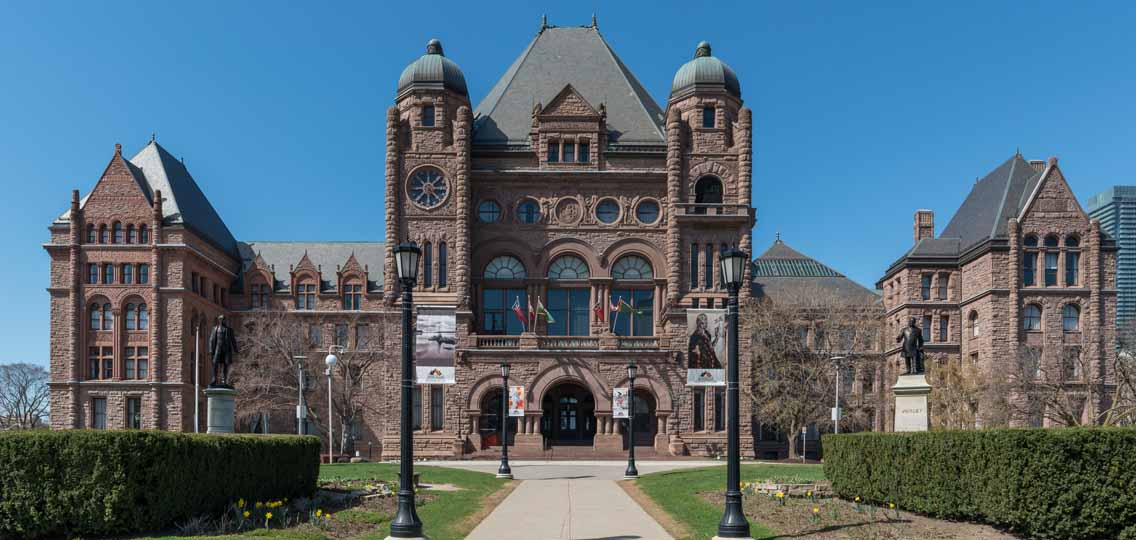Greenpeace Canada and Ecojustice will see Ontario in court in April over government’s failure to consult the public after cancelling cap and trade
TORONTO, 26 January 2019 — The Ford government’s attempt to dismiss a court case against them brought by Greenpeace Canada, represented by Ecojustice, has failed. The organizations filed a lawsuit against the Government of Ontario for unlawfully failing to consult the public when it ended Ontario’s cap and trade program. In early January, the government brought a motion to stop the case, arguing that there was no point in proceeding because the regulation to revoke cap and trade is no longer in force. On Friday, the court rejected this argument and said the case should proceed.
Keith Stewart, Senior Energy Strategist with Greenpeace Canada, said:
“We are eager for Doug Ford’s government to have to answer for their actions over cap and trade, and glad that Greenpeace will get our day in court to protect the environment and Ontarians’ democratic rights. This is an important reminder that not even Doug Ford is above the law.”
Professor Amir Attaran, lawyer for the Ecojustice-uOttawa Environmental Law Clinic, said:
“The Ford government broke the law when it illegally failed to consult the public. We’re going to court to remind Premier Ford that winning an election does not give his government carte blanche to ignore the legal rights of Ontarians to be consulted on major changes to the laws and regulations that protect them from climate change.
“Doug Ford’s attempt to stifle this lawsuit has failed – and not only that, the decision on the motion contained a suggestion that his government’s actions were illegal and it may be necessary to prohibit them from doing something similar in future. If the court finds that cap and trade was eradicated in an improper way, it will mean that the first action that Doug Ford and his ministers took on their first day in office was illegal—quite a disgrace.”
Timeline and key facts
- On July 3, 2018, Premier Ford’s cabinet filed Ontario Regulation 386/18 which revoked the existing Cap and Trade Program regulation and gutted the operational elements of Ontario’s cap and trade program.
- On July 25, 2018, the Minister of Environment, Conservation and Parks introduced Bill 4, the Cap and Trade Cancellation Act in order to repeal the entirety of the Climate Change Mitigation and Low-carbon Economy Act, 2016
- This lawsuit alleges that the Minister breached his legal duty under Ontario’s Environmental Bill of Rights (EBR) to consult the public about the Regulation, illegally invoking an exception to bypass public consultation on the Regulation, claiming that the 2018 Ontario election was a process that was “substantially equivalent” to the 30-day consultation process mandated by the EBR. The suit seeks to have the Court declare that the government’s actions were illegal and prohibit the government from acting in this way again.
- On January 7, 2018, Ontario brought a motion to throw out the case, arguing that there was no point in hearing it because the regulation that revoked the cap and trade program regulation is no longer in force. Ecojustice’s case challenged the Minister’s decision to except that regulation from EBR consultation on the basis that the provincial election was a public participation process “substantially equivalent” to that required by the EBR.
- The court rejected the Ontario government’s arguments on January 25, 2019. The case will be heard on April 1, 2019.
About cap and trade
- Ontario’s cap-and-trade system aimed to lower greenhouse-gas emissions by putting caps on the amount of pollution companies in certain industries can emit. If industry exceeded those limits, they were required to buy allowances at auctions or from other companies.
- Under the Climate Change Mitigation and Low-Carbon Economy Act, money raised from Ontario’s cap and trade program was deposited into a new Greenhouse Gas Reduction Account. The account invested money in green projects and initiatives that reduce emissions, like home energy retrofits.
About:
The University of Ottawa and Ecojustice, Canada’s largest environmental law charity, are partners in the uOttawa-Ecojustice Environmental Law Clinic, a problem-based educational learning course designed to help train the next generation of environmental law and policy leaders.

